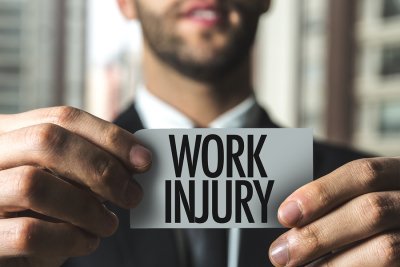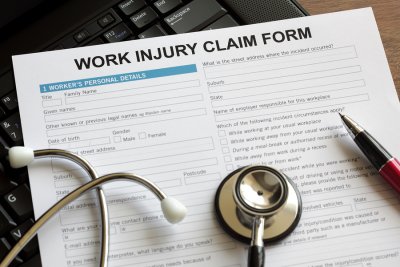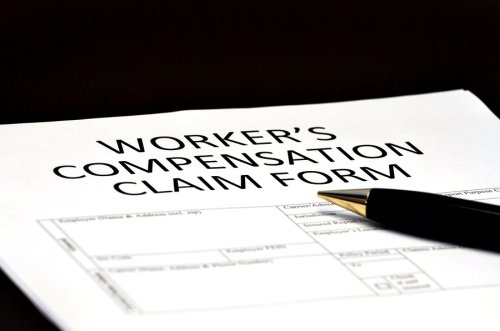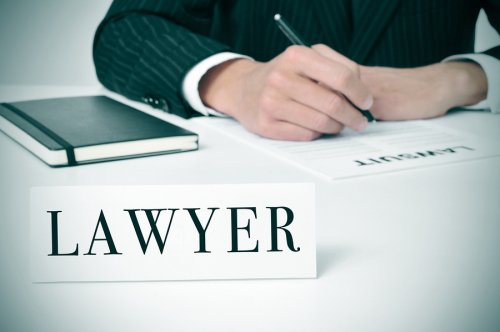-
Common Questions About Workers’ Comp in Maryland
Workers’ compensation law in Baltimore and throughout Maryland requires most employers to provide coverage for their employees in the event of a workplace accident that results in injury. If you’re an employee, it’s important to understand your legal rights regarding workers’ comp . You can consult an attorney if there are any uncertainties about your right to receive benefits or about the process of filing a claim.

How should I report an accident?
In the aftermath of a serious accident, your first priorities should be your safety and health. However, it’s also crucial to report the accident right away. This is different from filing a workers’ compensation claim. If your company has established guidelines for reporting a workplace accident, you should follow them. Otherwise, contact your human resources representative or supervisor to report the incident. Be sure to get a copy of the written accident report.
Will workers’ comp cover all of my losses?
If you are eligible for workers’ comp, all of your related medical bills will be paid. This includes expenses for diagnostics, treatment, pharmaceuticals, and rehabilitation. You will also receive a portion of your lost wages following an unpaid three-day waiting period. However, if your doctor states that you are still not able to return to work after 14 days, your workers’ comp payments will retroactively include pay for those first three days.
The workplace accident was my fault. Am I disqualified from receiving benefits?
Not necessarily; workers’ compensation is a no-fault insurance system. Even if you made a mistake that led to the accident and your injuries, you can still receive benefits for your lost wages and medical expenses. However, intentionally self-inflicted injuries are not typically covered. Some claims may also be rejected on the basis of drug or alcohol use.
What happens if my claim is contested?
An employer or the workers’ comp insurance carrier may contest the claim. If this happens, the party will inform the Maryland Workers’ Compensation Commission of these objections in writing. The party will also likely inform you or your attorney directly. When a claim is contested, the Commission schedules a hearing.
-
What Are Your Rights if You Are Permanently Disabled in a Workplace Injury?
You may already know that workers’ compensation can cover your medical expenses and some of your lost wages while you’re recovering from a covered workplace injury. But what happens if you become permanently disabled? Because every worker’s situation is unique, it’s best that you consult a workers’ compensation lawyer in Baltimore. Your attorney can review your case, discuss your legal rights and options, and answer any questions you may still have.

Workers’ Comp Eligibility
If you haven’t yet filed a workers’ comp claim, you can meet with an attorney to learn whether your injury is likely to be covered by workers’ comp insurance. If you’ve already filed a claim and it was denied, you should seek legal counsel promptly to discuss filing an appeal. Like other types of workplace injuries, a permanent disability can only be covered by workers’ comp if the injury was sustained during the course of the job. It may have occurred at the jobsite or elsewhere. For example, if you were driving a company truck and were involved in an accident, a permanent injury arising from that accident should be covered. Workers’ compensation is a no-fault system. This means that as long as you did not intentionally injure yourself, the injury should be covered regardless of whether you made a mistake that caused the accident. However, your permanent disability may not be covered if it can be proven that you were drinking or using drugs at the time of the accident.
Permanent Disability Benefits
In a few cases, a worker’s injury may be quickly categorized as being a permanent injury. For example, an incurable spinal cord injury can cause irreversible paralysis. In most cases, workers are not eligible for permanent disability benefits right away. They may still receive workers’ comp benefits during their recovery period. However, a worker isn’t considered to have a permanent disability until he or she has reached maximal medical improvement (MMI). MMI occurs when a physician determines that a patient is unlikely to improve further. At this point, if you still have lasting impairments, you may be eligible for permanent disability benefits.
-
Can You Sue Your Employer Over a Workplace Injury?
In most cases, workers’ compensation law in Baltimore prevents employees from suing their employers because of a workplace injury. Workers’ compensation is designed to provide a no-fault way for employees to receive medical treatment and a percentage of their lost wages. However, workers’ compensation benefits do not extend to all workplace injuries and in some cases, it may be possible to have a workers’ comp lawyer file a lawsuit against the employer .
For example, an injured worker may sue the employer if the employer was legally required to carry workers’ comp insurance and failed to do so. Depending on the circumstances, it may be possible to bring a lawsuit against an employer who allegedly engaged in intentional or egregious conduct that resulted in the workplace injury. In other cases, a lawsuit may be filed against a third party. For example, a workplace injury might be caused by an outside vendor. If the injury is caused by a defective product, the product’s manufacturer might be named as a defendant in a product liability lawsuit.

““
-
Talking to Your Teen About Safe Driving
The possibility of a car accident is one of the most common fears that parents of teens have when their kids begin learning how to drive. Watch this video to get some tips on how to keep your teen safe from car accident injuries and from the possibility of being named as the defendant in an accident injury lawsuit filed in Baltimore.
This interview with a car accident expert explains that studies show that parents generally do well when teaching their teens how to accelerate, park, and otherwise maneuver the car. However, parents also need to teach teens how to scan the road for potential hazards, judge the distance and speed of oncoming traffic, and drive in adverse conditions like bad weather and traffic jams.
-
How Are Damages Determined in an Auto Accident Injury Case?
Compensatory damages comprise the monetary award that is intended to compensate a car accident victim for his or her losses. When you visit a car accident attorney in Baltimore to discuss your case, he or she will advise you to keep careful track of all of your expenses that stem from the crash. You should document these expenses so that your injury attorney can prove your losses in court.

Medical Care
A car accident lawsuit typically requests compensatory damages for the plaintiff’s medical expenses. Severe car crash injuries can result in exorbitant medical bills, which may include the cost of diagnostic testing, hospitalization, specialist consults, surgery, and other medical treatments. Damages can also include the cost of purchasing or renting durable medical equipment, co-pays for medications, and expenses for physical therapy sessions. Plaintiffs should save all medical bills and receipts.
Property Damage
Car repairs or the replacement of a totaled vehicle can be added to the amount of compensation sought by a car accident lawsuit. The plaintiff can either be reimbursed for the necessary repairs or paid the equivalent of the fair market value of the lost property.
Lost Wages
It is not uncommon for car accident victims to miss time at work because of the accident and their recovery. Plaintiffs should thoroughly document their lost wages in order to request full compensation. Sometimes, a plaintiff might also seek compensation for the loss of future earning capacity. This applies in cases in which the plaintiff is expected to be permanently disabled-either partially or completely.
Pain and Suffering
Accident injuries can result in significant physical pain for victims. Some of them may even develop chronic pain because of their injuries. A personal injury lawsuit may seek reasonable compensation for the plaintiff’s pain and suffering, which might be documented by medical records and prescriptions for pain medications.
Emotional Distress
In particularly severe accident cases, plaintiffs might have the grounds to seek compensation for their emotional distress. Emotional distress can refer to any psychological injury that resulted from the accident, such as post-traumatic stress disorder (PTSD), insomnia, depression, or anxiety disorders.
-
Returning to Work After a Workers’ Compensation Claim
Workers’ compensation is an invaluable benefit for injured employees who need medical treatment and time off from work. In most cases, employees are able to return to work once they are sufficiently recovered. The doctor who is handling your workers’ compensation injury in Baltimore will let you know when you are cleared to return to work and whether you will need any workplace modifications. If you have any concerns about returning to work, you can consult your workers’ compensation attorney .

Making Notifications
Ask your workers’ compensation lawyer about whether you are legally required to make any notifications about your change in work status. You or your attorney may need to notify your employer’s workers’ comp insurance carrier and the Workers’ Compensation Board.
Receiving Wage Loss Benefits
It is possible for an injured employee to return to work before he or she is completely recovered. If this applies to you, then the doctor who handles your injury case will let you know if you must work shortened hours, avoid certain activities, or make any other adjustments to your work situation. Because of these modifications, you may be earning a reduced wage than you were before the injury occurred. If so, you may be entitled to continue to receive some workers’ comp benefits. Continuing benefits after returning to work is known as receiving wage loss benefits or reduced earning benefits.
Continuing with Medical Treatment
Some workplace injuries require long-lasting medical care. If you must continue with physical therapy or take medications, or if you require any other type of medical care because of a workplace injury, then you will still receive medical benefits. Medical treatments that stem from covered injuries are paid for entirely by the workers’ comp insurance carrier. You can also request reimbursement for travel expenses to and from medical appointments. Additionally, if you must miss some time from work to go to medical appointments, you may be eligible for benefits for “intermittent lost time.”
Reopening Your Case
There can sometimes be discrepancies between what a doctor says you are capable of and what you’re actually capable of. If, after returning to work, you find you cannot fulfill the demands of your workplace, you should consult your attorney promptly. It may be possible to request changes to your job, ask for a short-term position, or extend your period of disability and collect full benefits again.
-
What Injuries Qualify for Workers’ Compensation Claims?
Have you been told that your injury might not qualify for workers’ compensation ? If so, it’s time to talk to a workers’ compensation lawyer in Baltimore. Your attorney can review your case to determine if you are eligible to file a workers’ comp claim. First, your workers’ compensation lawyer will check your type of employment. If you are an actual employee, rather than an independent contractor, then you should be covered under your employer’s insurance carrier.
Next, your lawyer will consider whether your injury or illness arose out of the course of your employment. It isn’t always necessary for an injury to occur at the worksite. For instance, if John drives a delivery truck and is responsible for unloading heavy crates at the destination, then a back injury from lifting those crates did indeed arise out of the course of his employment and so it would be covered under workers’ compensation. Another requirement of workers’ comp is that qualifying injuries cannot have been intentionally caused by the claimant. For example, if John intentionally drives the delivery truck into a utility pole for the purpose of filing for workers’ comp, his injuries would not be covered.

-
Recovering from Whiplash
If you’ve recently been involved in a car accident in the Baltimore area, it’s important to seek prompt medical care for your car accident injuries. Some of these injuries, such as whiplash, may not be immediately apparent after the crash. Keep a written list of symptoms as they develop to share with your injury lawyer. Be sure to follow all of your doctor’s instructions for recovering from your car accident injuries.
You can get some helpful tips on recovering from whiplash when you watch this video. It explains the benefits of keeping a positive attitude and staying physically active while healing. Of course, you’ll need to avoid strenuous activities and activities that aggravate the neck. Instead, take a stroll around the block or enjoy some gentle swimming to support your body’s health while you heal. Some whiplash patients may be prescribed medications to minimize the swelling and pain.
-
Permanent Disability After an Auto Accident: What Are Your Rights?
Car accident injuries vary widely in their severity. In some cases, survivors are expected to suffer from permanent disabilities. If you’ve sustained severe injuries in a car accident in Baltimore, it’s time to contact an injury lawyer. Your attorney will need access to your medical records and related documents. Then, your injury lawyer will explain your legal rights and discuss your options for securing compensation for your permanent disability.

Filing a Car Accident Lawsuit
After a car accident, it’s common for survivors to secure compensation by filing a claim against the other driver’s insurance carrier. In the case of catastrophic injuries that lead to permanent disabilities, the settlement offered by the insurance company may not be enough to fully compensate you for your current and future medical expenses, lost wages and loss of earning capacity, and other losses. Instead, your injury lawyer may recommend filing a car accident lawsuit. Your lawyer might ask that an independent evaluator calculate the total damages, based on your work and earnings history, your anticipated future medical needs, and similar factors. A successful jury award or out-of-court settlement can give you the money you need to support your family and provide for your medical needs despite your inability to work.
Filing a Social Security Claim
In addition to filing a car accident lawsuit, you may be eligible to pursue Social Security disability benefits . Since these claims are often initially denied, it’s a good idea to let your injury lawyer handle your Social Security case right from the start. First, your lawyer will consider whether you meet the definition of disability under the Social Security eligibility rules. You can only recover disability benefits if you have a total inability to work and your condition is expected to last for at least one year or to result in death. If you meet this eligibility requirement, then your lawyer will consider whether your disability is on the list of disabling conditions and whether your disability interferes with basic work-related activities. These are all factors that will be considered when your disability claim is reviewed. Even if your claim is initially denied, you do have the right to file an appeal.
-
Auto Accidents 101: What Is a Claim?
After being involved in a car accident in Baltimore , your health should be your priority. You can hire an injury lawyer to handle your case, which allows you to focus on your recovery. After reviewing your case, your injury lawyer will file a claim with the insurance carrier. This is not the same as a car accident lawsuit, although it may sometimes become necessary to file a lawsuit later. A claim is filed with the other driver’s auto insurance company. This begins the process of obtaining a settlement, which is money that compensates you for your medical bills, property damage, and other accident-related expenses.
Your injury lawyer will calculate your total monetary losses and may include this figure in the claim. The insurance carrier may then respond with a counteroffer. Your injury lawyer will continue to negotiate with the company until both parties agree to a settlement. If a fair settlement is not forthcoming or you do not agree with the amount the insurance company offers you, then you might consider filing a lawsuit.

RECENT POSTS
categories
- Uncategorized
- Worker's Compensation
- Attorney Fees
- Auto Accident Injury Whiplash
- Attorney Review
- Personal Injury
- Social Security Disability
- DUI
- Workplace Injuries
- Auto Accident
- Workers Compensation Claims
- Permanent Disability
- Infographic
- Drunk Driving
- Wrongful Death
- Works in Maryland
- Uninsured Motorists
- Motorcycle Crashes
